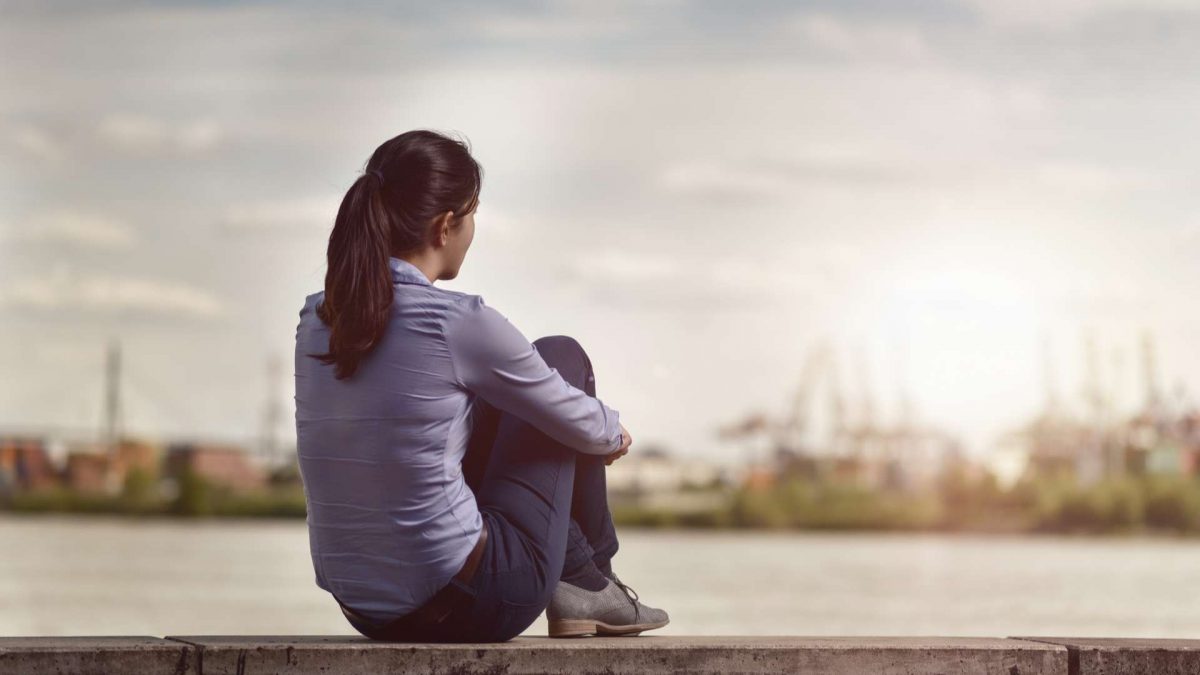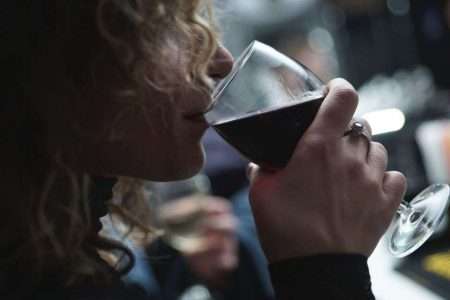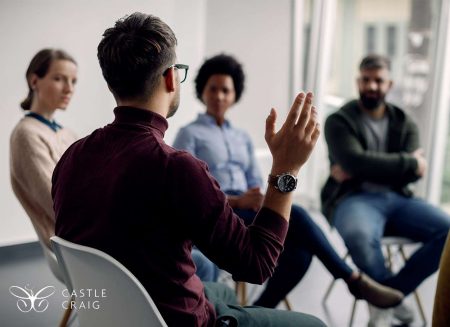Alcohol induced panic attacks: Sometimes the anxiety and panic attacks are so severe that the only way a person feels they can deal with it is through drinking to self-medicate. There is a clear correlation between alcohol addiction and anxiety and one has the potential to lead to the other. The relationship between the two may be complex, but can also be explained.
People drink for many reasons, and stress and anxiety are common. It is true that alcohol can help with anxiety, at least temporarily, but it can also make it worse in the long run and cause serious panic attacks. While it is normal to feel anxious after heavy drinking, when alcohol-induced panic attacks become a common occurrence, it is a sign of a serious problem.

Download Our Brochure
Is There a Connection Between Alcohol and Anxiety?
Alcohol is a common form of self-medication for social anxiety, generalised anxiety disorder, and panic disorder. In fact, about 25% of people with panic disorder have a history of alcohol dependence.
Not only does anxiety lead to drinking, and drinking lead to anxiety, but the two trigger each other into a spiraling cycle. For example, anxiety makes a person start drinking, which worsens their anxiety, which leads them to drink more and worsens their anxiety further.
Alcohol causes anxiety because it upsets hormones, brain function, and sleep. When the body and mind haven’t had the opportunity to rest, a person may feel on edge and irritable. If a person is also taking antidepressants, which is not uncommon for people with anxiety, the combination of the two worsens the condition and can trigger a severe panic attack.
Long-term alcohol misuse can not only induce panic attacks but can also lead to PTSD. This becomes even more true if a person has an anxiety or panic disorder. Alcohol not only contributes to anxiety but rewires the part of the brain responsible for coping with fear. Because of this, a person will hold on to fear-inducing associations longer and will have a harder time recovering from trauma.
There is also evidence that chronic alcohol misuse can lead to lasting anxiety, even after a person becomes sober.
What Causes Panic Attacks After Drinking Alcohol?
A panic attack, after alcohol or otherwise, is an episode of extreme anxiety where emotions are amplified and terrifying. A person may experience shortness of breath or hyperventilate and feel detached from reality. Their mind is overloaded with worrying thoughts and fears, even of things that do not present any clear and immediate danger.

There are several explanations for why alcohol is responsible. If you look at the biological side of things, it is well-known that alcohol causes a number of physiological symptoms such as dehydration, low blood sugar, and elevated heart rate. These may make a person feel uneasy, dizzy, and irritable, and may lead to a panic attack. It’s not just alcohol that causes this. Too much of some drugs such as caffeine, or even sugar can prompt a similar response.
Because alcohol affects GABA, an inhibiting neurotransmitter in the brain, it does make a person feel calmer at first. It acts like a depressant and sedative. However, when the alcohol wears off, GABA levels decrease, triggering an anxious, exaggerated, and overstimulated state.
Serotonin levels go up and down in a similar fashion. They go up when a person drinks, and crash when they stop. If a person drinks regularly, the natural GABA and serotonin levels can get destabilised, making withdrawal symptoms and anxiety attacks worse.
Although there is no evident source for anxiety, these symptoms are interpreted by the brain as stress and worry due to biofeedback. Thus, small things may easily upset them, and certain words or actions may be misunderstood. Something that would normally be ignored will now trigger paranoia and panic.
If blackouts are involved, the extra stress of the unknown, especially if poor judgement was involved, can increase anxiety levels further.
What Is “Hangxiety”?
Have you ever felt “on edge” after a night of drinking? Maybe it’s just a simple feeling of “something’s not right” or you’re just extra sensitive to everything going on around you? Or perhaps you’re actually paranoid or flat-out scared, and can’t explain why. This phenomenon is known as an anxiety hangover, or more casually, “hangxiety”.
Although even a heavy night of drinking can trigger anxiety, major withdrawal symptoms and bad hangovers make alcohol panic attacks even more likely. Hangovers can also add to the stress, if a person can’t function, or has to miss work/school.
These symptoms sound similar to a panic attack don’t they?

If it’s a severe hangover, a person can experience:
- Elevated heart rate
- Sweating
- Nausea
- Trembling.
- Paranoia
- Psychosis
Your brain will think so as well. Although these are typical symptoms of a hangover, via biofeedback, they can trick your brain into having a real one.
Are Alcohol-Induced Panic Attacks a Sign of Addiction?
Because the alcohol and anxiety cycle feeds on itself, and over time causes a person to drink more, eventually it may lead to addiction. If a person uses alcohol as a form of self-medication, it can quickly escalate into a serious problem. If a person regularly drinks to the point where alcohol panic attacks are the norm, it is a sign of addiction.
If you are unsure, the following test can help you identify a potential problem with alcohol.
Alcohol-induced panic attacks are scary and you might feel like cutting down on your drinking. If the alcohol panic attack is hangover related, that is a warning sign as well. Another thing to watch out for is increases in the severity and frequency of anxiety levels and alcohol panic attacks. These are evidence that you are either drinking increasing amounts or that your brain has already been affected.
If you can’t cut down on drinking despite recurring panic attacks or anxiety hangovers, then it would be a good idea to look into getting help.
How to Deal With Alcohol Panic Attacks
If you experience an alcohol-induced panic attack, it is important to take the right steps to calm yourself as soon as possible. However, while it is important to deal with panic attacks, it is also important to acknowledge the situation and the fear you feel. No matter what it is. By acknowledging it, you will help your mind understand what is going on so as to understand that the situation will pass.

Compassion & Respect
1. Talk to a friend
If you have a sympathetic friend, stay or chat with them. It can be a good distraction, and the company will provide added comfort. Otherwise, do something relaxing that will take your mind off the situation. Breathing exercises and simple meditation can help provide relief.
2. Mindfulness
Engage in some calming breathing techniques to focus your mind.
3. Get some rest
When you’re having a hangover, sleep can do wonders. Getting proper rest can ease panic-inducing symptoms and prevent a panic attack. Water and easily digestible carbohydrates will help refuel your body and brain, and counteract low blood sugar. Contrary to popular advice, stimulants such as caffeine or sugar, or even smoking, can make both the hangover and the anxiety worse, so avoid them.
4. Eat a healthy diet
If severe anxiety or panic attacks are a problem for you, make sure you get proper nutrition and exercise. Stable blood sugar is important for a stable mind. Psychotherapy and mindfulness meditation can help you deal with anxiety.
5. Get outside into nature
Nature or ‘green therapy’ has a proven effect on anxiety levels and calming panic attacks.
6. Examine your drinking habits.
If your panic attacks are alcohol-related, you should also re-examine your drinking patterns and consider cutting down on your drinking.
7. Seek professional advice
If you are worried about your drinking and don’t feel you can stop, you should seek professional advice or speak to a telephone helpline such as Alcoholics Anonymous or The Samaritans.
If you have been trying to quit drinking for a while but you can’t stop despite the negative consequences on your life, you might want to consider joining a 4-6 week treatment programme at an alcohol rehab clinic like Castle Craig.

At this type of clinic you will undergo detox (if needed) and engage with a therapist who will listen to you and help you develop the skills you need to stay sober. An intensive treatment programme will also include educational presentations delivered by therapists, access to a fitness programme, and complementary therapies such as equine therapy. A continuing-care plan is essential to mitigate the risk of relapse. A skilled therapist will assess your anxiety levels and panic attacks and be able to create a treatment plan that addresses these issues.



